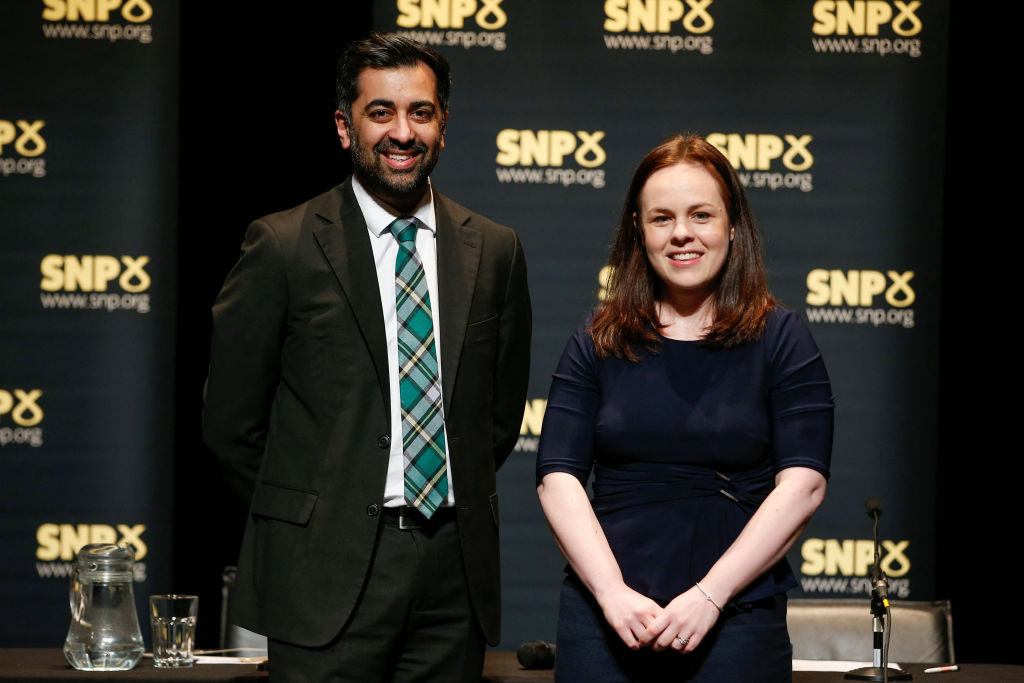We are almost there: on Monday, the SNP will appoint its new leader after five weeks of what will surely be remembered as the most controversial and consequential change of leadership in the short history of devolution.
Nicola Sturgeon’s resignation in February came as a surprise even to her closest allies. They knew the First Minister was closer to the end of her tenure than the start; it seemed likely she would find a way to avoid standing in the 2026 Scottish parliament election. But even those closest to her did not believe that, six weeks after she boldly told Laura Kuenssberg that ‘there’s plenty in the tank at the moment’ and that ‘for the avoidance of doubt I don’t feel anywhere near [the end] right now’, she would be answering her final set of First Minister’s Questions today.
This is not the election of a new leader; this is the election of a new party and a new government.
If Sturgeon’s departure was unexpected, so, too, was the manner in which the race to replace her has imploded. A relatively calm campaign seemed likely: those ‘in the know’ expected Angus Robertson, the former Westminster leader and current constitution secretary, to emerge victorious, with Kate Forbes a close second. The pair of them would, it was hoped, go on to lead the SNP to another few election victories.
But that is not where we are. Instead Humza Yousaf is the party establishment’s choice and the candidate defending and pledging to continue the legacy of the Sturgeon-Swinney era. Forbes is his main opposition: the candidate telling the SNP membership that what they think is true is actually false, that what they think is good is actually bad, and that all the people who hate them need to like them in order to win independence for Scotland. Yousaf is the leftist dedicated to the Green party coalition. Forbes is the centrist focused on the economy and the reform of public services. This is not the election of a new leader; this is the election of a new party and a new government.
And it is for all those reasons that I wonder, in the cold light of day, whether the winner will end up wishing they had lost. The new leader will have two electoral tests right around the corner.
The general election is only a little over 12 months away. The SNP will defend 48 out of Scotland’s 59 seats, won on the back of 45 per cent of the vote in the 2019 poll. Current polling has the party struggling to stay in the forties bracket. They are defending 13 seats with majorities of less than five per cent, and a further 17 with majorities of less than ten per cent. Most of these are vulnerable to Labour, which gathered less than 19 per cent of the vote in 2019 but which is breaking into the thirties in most polls today. The outlook in the 2026 Scottish parliament election is similarly challenging. Whether or not there will be a pro-independence majority in 2026, as there will have been by then for 15 years, is a live issue.
Whoever wins on Monday is likely to face an SNP reversal in both of those elections. Although that reversal would likely be no fault of their own, it is as certain as night following day that they will be blamed for it. Yousaf’s detractors will say they told us so. They warned us he wasn’t up to it. They told us that Nicola 2.0 was never going to be able to be better than Nicola 1.0. Forbes’ opponents will say something similar. It’s because of her radical social views, and her shift to the right, that our voters left us for Labour.
What happens then? Whoever wins on Monday will likely fight the general election, but can we be so sure they will still be leader for the Scottish parliament election a couple of years later?
I think not. This may turn out to be the job that nobody should have wanted.






Comments